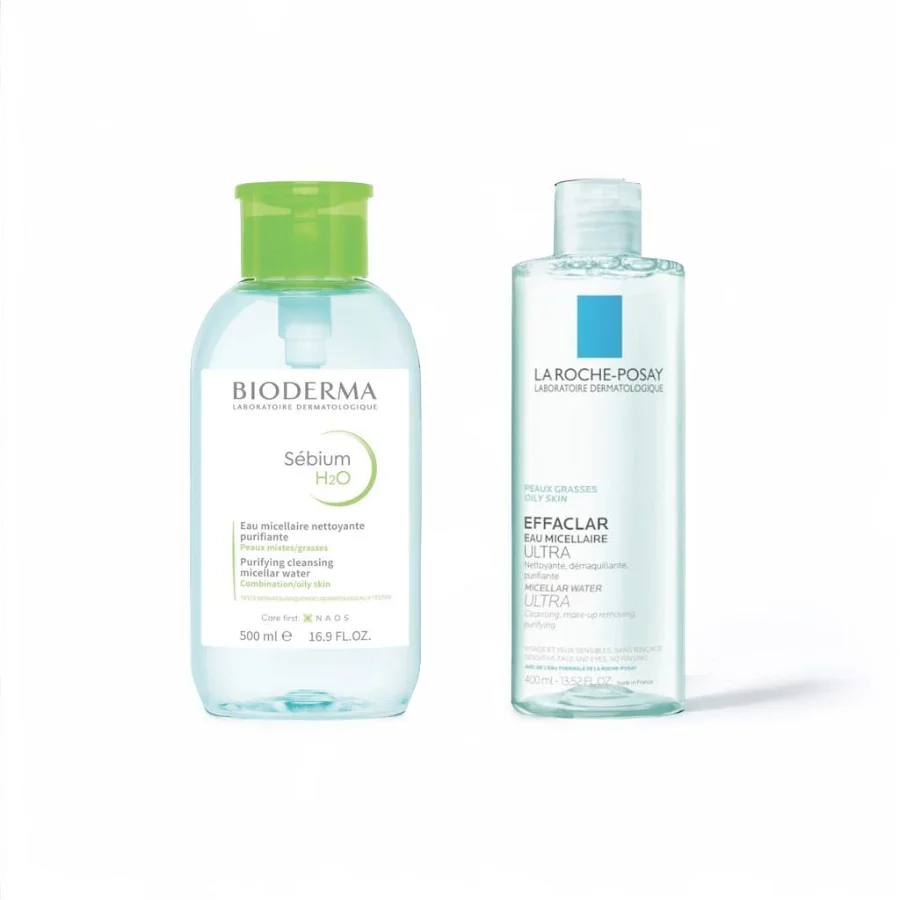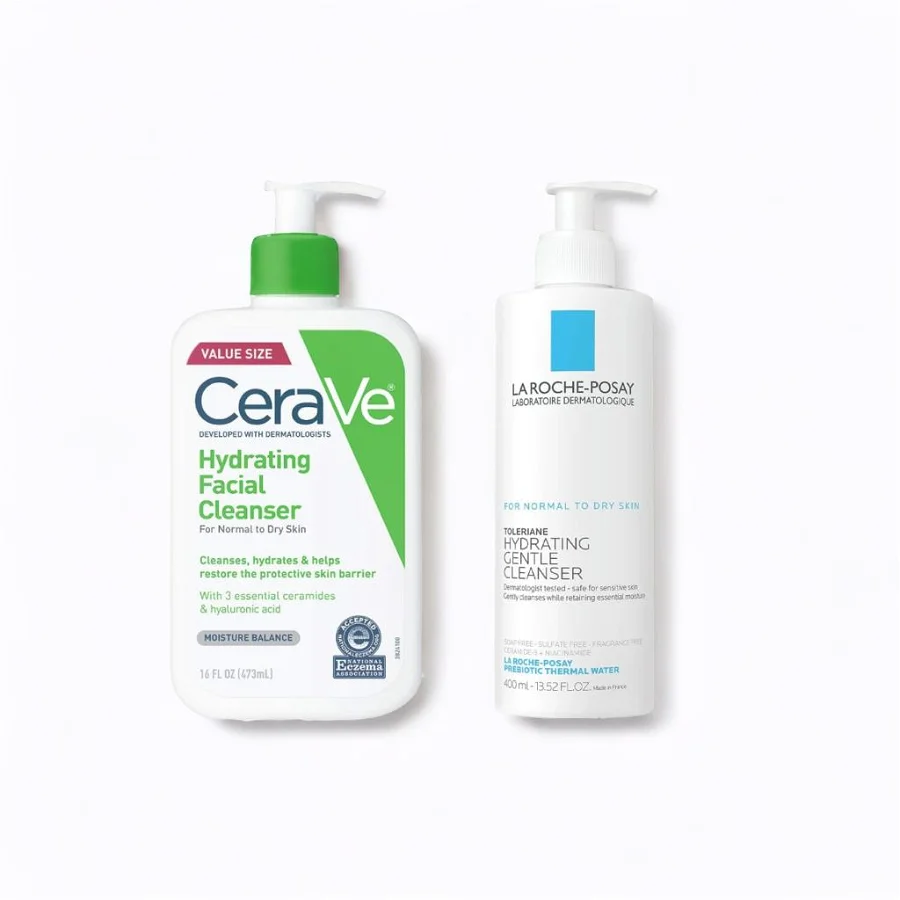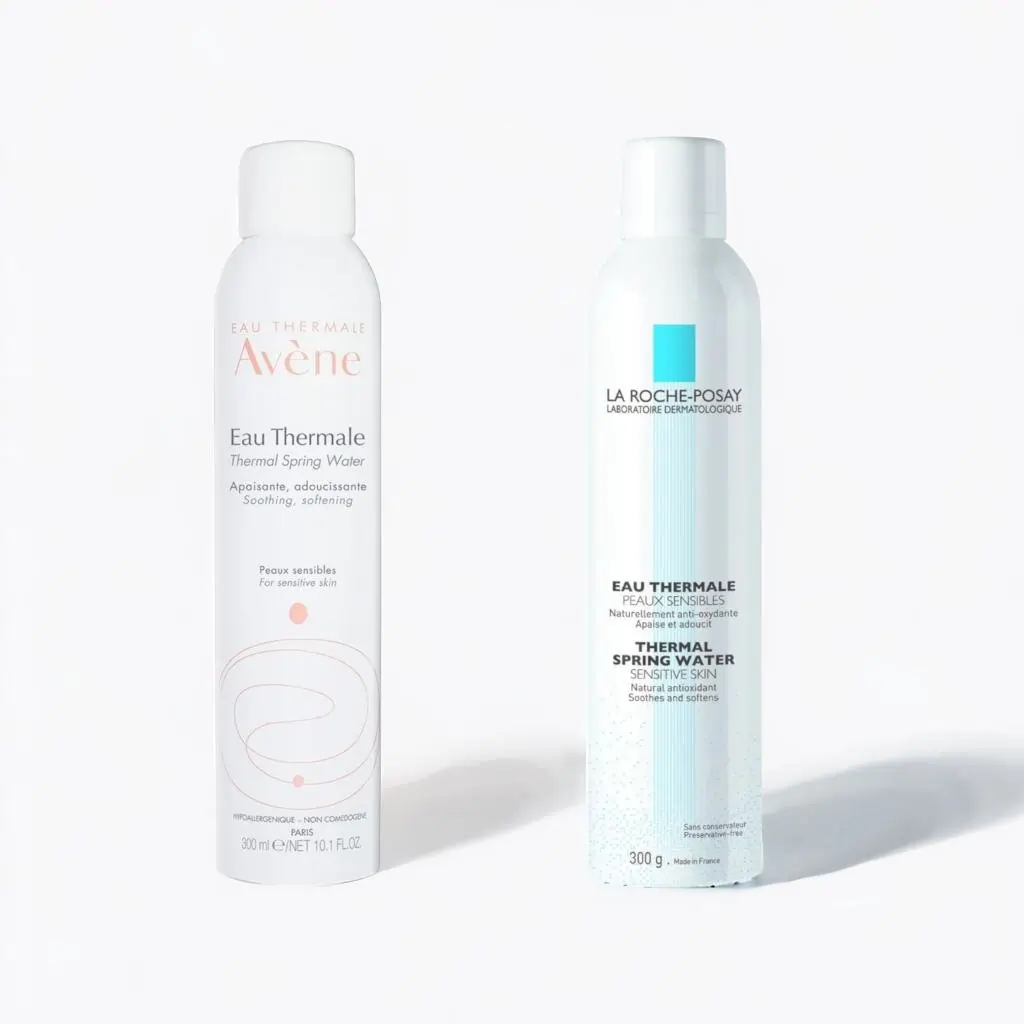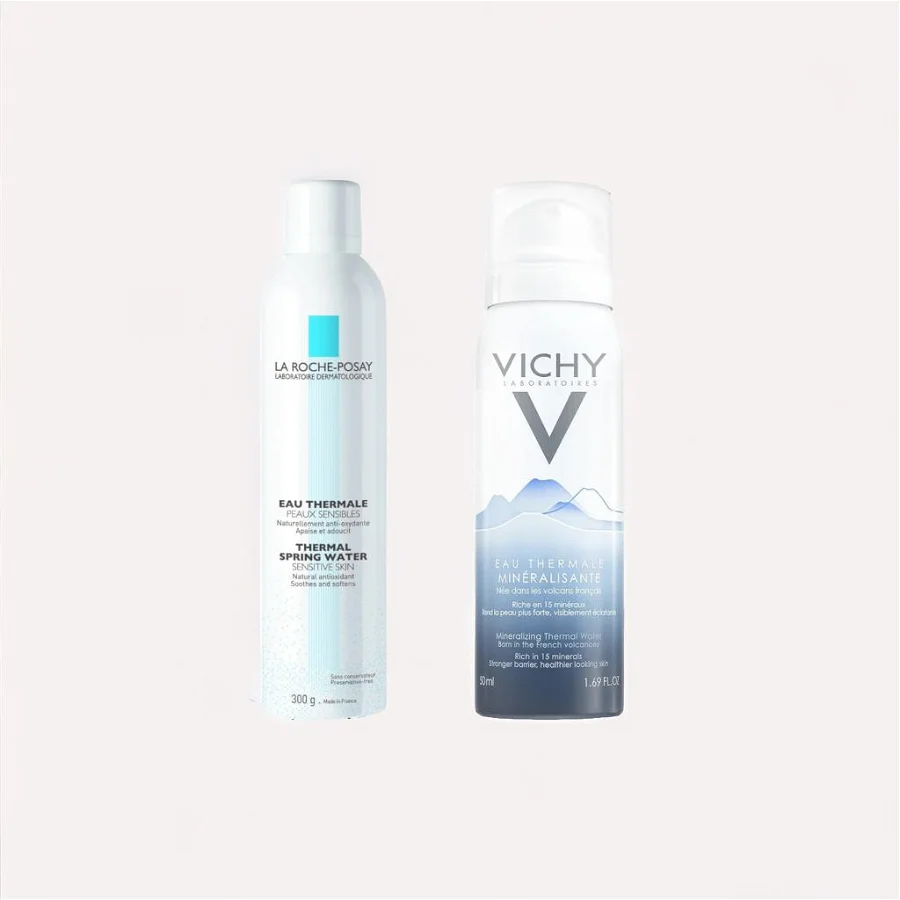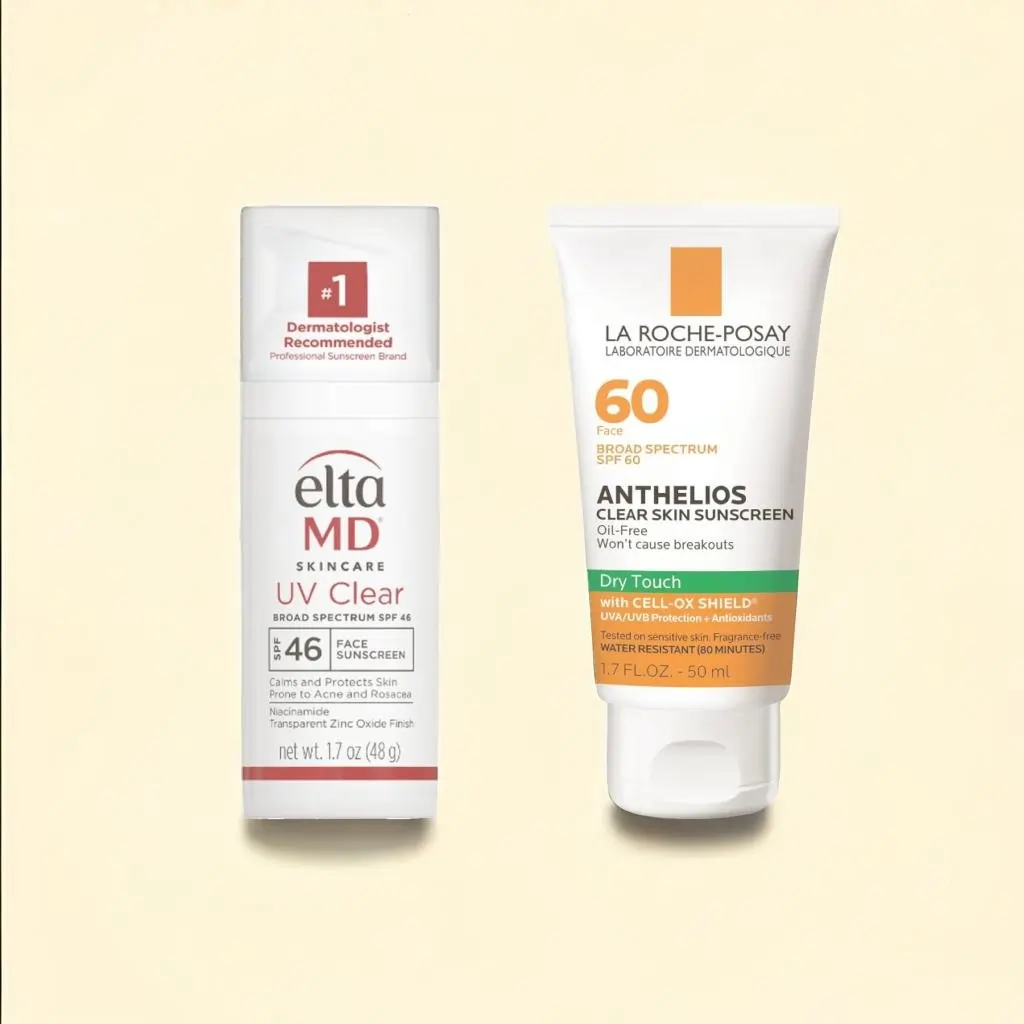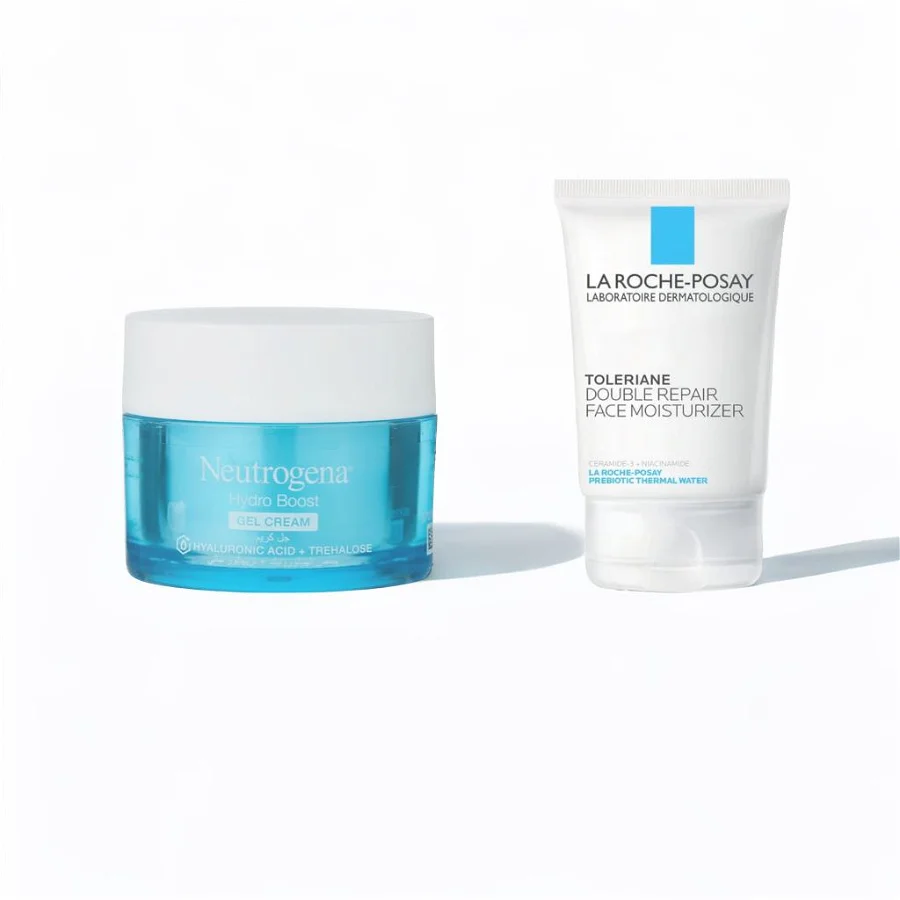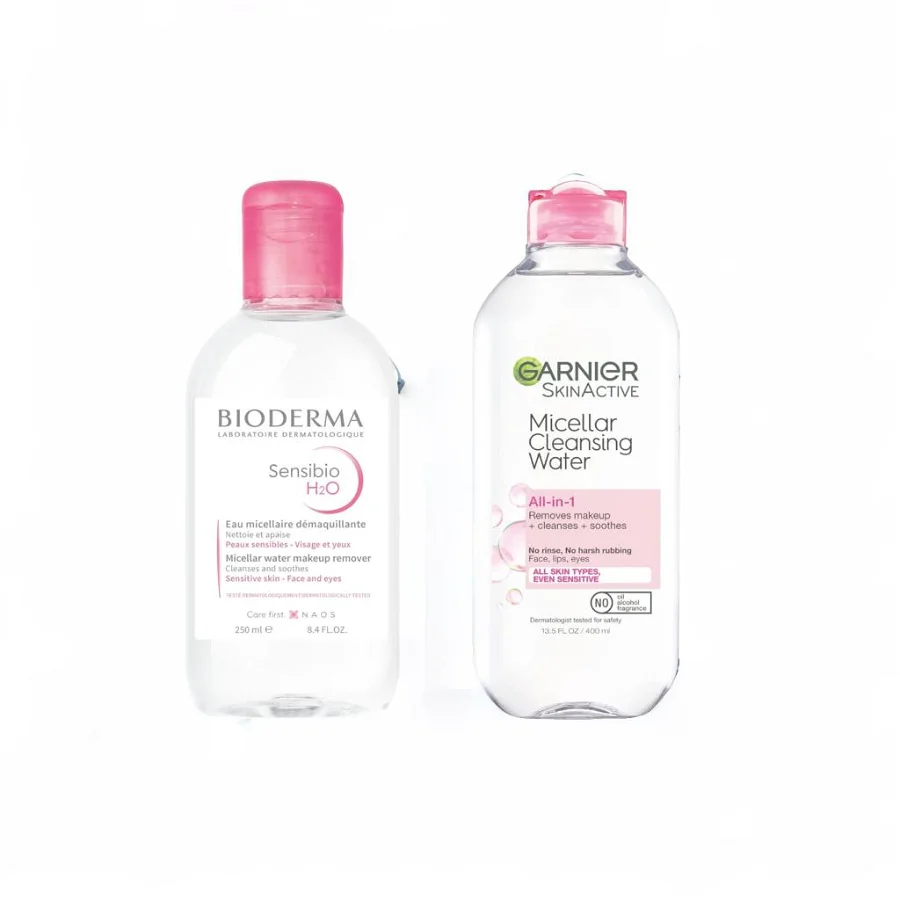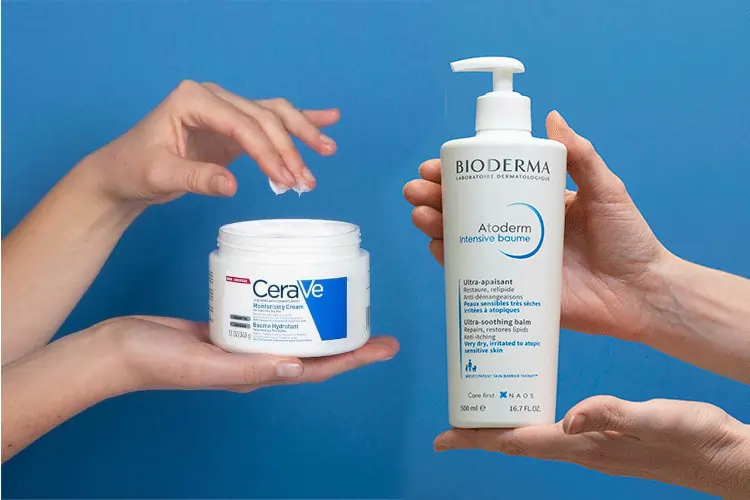Two of our favorite luxurious and dermatologically-sound skincare brands are Bioderma and La Roche-Posay. Both French, and both focused on quality skincare, these two brands have more in common than one might think.
However, our job today is to give you the differences – so you can choose which might be right for you. Read below our assessment of each company’s culture, a few standout products, and consider your own skin type for help deciding which brand might be for you.
Bioderma vs La Roche Posay Micellar Water
When choosing between each of their micellar water options, the driving factor seems to be skin type.
If you have sensitive and oily skin, the La Roche-Posay Effaclar Micellar Water was made with you in mind and would be the more solid choice.
The Bioderma Sébium H2O Micellar Water on the other hand, seems like the most popular makeup remover of the two judging by the online rave reviews.

La Roche-Posay Effaclar Micellar Cleansing Water Toner
A fresh, cleansing water, specially formulated for combination and oily skin.
Pros
Removes long-wear foundation
Thermal spring water antioxidant
Cons
Fewer online reviews
What makes it special? With over 70 reviews on their official website (with >85% of which being 5-star ratings), this micellar water must be doing something right. The two key ingredients utilized here are glycerin for hydration, thermal spring water as an antioxidant which contains selenium. La Roche-Posay also touts the claim of being able to remove 99% of long-wear foundation, based on a four-week consumer test – and we love to see statistics.

Bioderma Sébium H2O Micellar Water Pump
Cleanses, removes make-up, and purifies the skin without drying it.
Pros
Non-comedogenic formula
Patented natural complex
Cons
Limited online reviews
What makes it special? Their formulation is non-comedogenic and is inspired by the skin’s lipids and uses active ingredients like zinc gluconate and copper sulfate. Their formulation also has a patented natural complex, which Bioderma claims raises the skin’s tolerance threshold, and even limits sebaceous secretion. Knowing that all Bioderma products are efficacy and safety tested and made with French quality makes us feel confident in recommending H2O for almost any skin type.
Bioderma vs La Roche Posay Cleanser
If you’re blemish prone, you can rest easier knowing the La Roche-Posay Effaclar Purifying Cleansing Gel was created distinctly for oily skin.
It’s also hard to compete with 500+ stellar reviews on their website and a standing 4.5 star rating overall.
The Bioderma Sebium Gel Moussant seems like a safe choice, knowing that it’s a soft and gentle cleanser and non-drying.
However, nothing competes with statements from real consumers. With La Roche-Posay having the additional option of purchasing a smaller product for less money as a sort of trial option, we have to give this one to La Roche-Posay.

La Roche-Posay Effaclar Purifying Foaming Gel Cleanser
A foaming gel face wash specially formulated for oily and blemish prone skin.
Pros
Eco-friendly packaging
Body wash dual purpose
Cons
May need adjustment period
What makes it special? This formulation claims to be hypoallergenic and mild, and made with protected thermal spring water. Additionally, La Roche-Posay uses recycled materials and distinctly avoids bulky cardboard packaging sourced from 100% sustainably managed forests. The French company has a self-proclaimed ‘ambitious agenda’ which focuses on waste management, water saving and reduced CO2 emissions. This not only makes sense when thinking about environmental factors that affect the skin, but it gives a sense of security knowing that this cleansing gel doubles as a body wash. That’s right – you could call this product a two-for-one special.

Bioderma Sébium Foaming Gel Pump
A soft, purifying cleanser which is non-comedogenic, non-drying and soap free.
Pros
Soap-free pH balanced
Clinical safety testing
Cons
Gentler for stubborn makeup
What makes it special? With zinc sulphate and copper sulphate, it claims to limit the actual secretion of sebum on the skin. Due to its soap-free nature, it maintains the skin’s proper PH balance. Like all Bioderma products, they are made in France and safety tested under clinical studies. According to their official website, all Bioderma products go under tolerance tests with independent dermatologists, allergists and toxicologists. That’s a rap sheet we can get behind.
Bioderma vs La Roche Posay Moisturizer
So, which pore refining moisturizer is the one for you? We think – once again — it comes down to your skin and its tendencies.
La Roche-Posay comes through consistently with a product made for oily skin specifics, while Bioderma has a wider range of skin types in mind for their end-user.
That being said, the La Roche-Posay Effaclar Mat comes in a slightly larger bottle, for slightly less cost.
Aside from the disparity in number of reviews on their official websites (with La Roche Posay boasting a considerable amount more), these two products seem very evenly matched!
Pros
Sebolyse ingredient proven
Mattifies and tightens pores
Cons
Higher price point
What makes it special? Available in a 40 ml tube, this moisturizer is enriched with Sebolyse: an active ingredient which is clinically proven to mattify skin and tighten pores. This formula claims to act as a blotter to “mop up” excess oil and was created specifically for oily skin which is prone to shine. Judging by the number of rave reviews it has online, we'd say this is an incredibly safe bet.
Pros
Fluidactiv complex regulates sebum
Pores barely visible results
Cons
Limited to T-Zone use
What makes it special? Non-comedogenic, and pore-mattifying, this product is listed as a good base for makeup. Bioderma uses a patented Fluidactiv complex to regulate sebum quality. This formulation also uses agaric acid, which acts as an astringent to help refine the skin texture and enhance radiance. This product is generally recommended for the T-Zone. Regarding oil control, it does its job after just a few uses, and after almost a month, pores are barely visible.
Bioderma vs La Roche Posay Conclusion
Both of these French brands take great care in making high efficacy and highly tested products, while keeping a deeper knowledge of our environment and its effects on our skin in mind. Both brands have a wealth of background information on their product lines on their website.
All in all, the main differentiator in these products is the skin of the end-user and whether or not you need a specially focused formula. That being said, we admire both brands’ commitment to innovation and clinical testing.
While Bioderma lacks some online reviews, we acknowledge their efforts on not providing incentives for reviews and staying transparent. La Roche Posay tends to offer more variety in sizing and overall seems to be ever-so-slightly more affordable.
We can enjoy the pros and cons of each of these brands and can confidently say after our further research, that you couldn’t really go wrong with either. Personal circumstances will make all the difference when diving into either of these high quality and environmentally focused skincare lines.
Bioderma
We love that Bioderma takes into account the environment and the fact that they are cognizant of the fact that skin is affected by things like UV damage, pollution, extreme weather and other pollutants in our atmosphere. We also love that Bioderma does not pay or alter their own reviews on their site, which in our opinion makes them trustworthy and transparent.
NAOS, the parent company of Bioderma, prides itself on taking an ecobiological approach, which they claim: “sees the skin as a living ecosystem that constantly interacts with its environment and that changes over time.”
This approach is based on a company-led “respect for the skin and knowledge of the biology.”
La Roche Posay
La Roche Posay is a dermatologist-backed brand, driven by the desire to find skincare solutions for even the most fragile skin types.
They are extremely forward thinking when it comes to skin technology, as exemplified by their partnership with Apple to produce ‘My Skin Track UV,' a sensor and app that measures pollution, humidity and other dangerous skin exposures.
Their claim to fame is that they are recommended by 90,000 dermatologists worldwide.
All of this tells us La Roche-Posay is not only environmentally focused with its skincare, but that professionals back their products.
